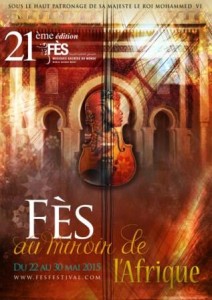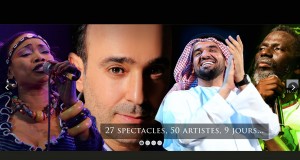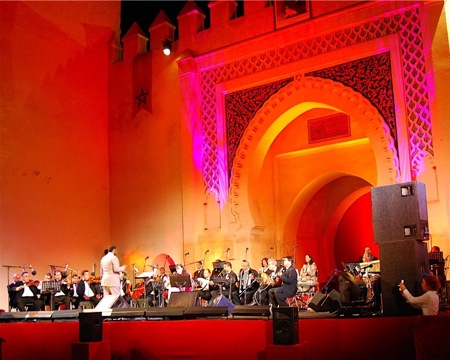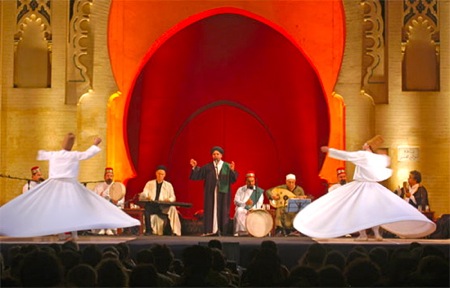Posts Tagged ‘Fes Festival Tour’
FES FESTIVAL OF WORLD SACRED MUSIC 21st EDITION PROGRAM From 22-30 May 2015, the ancient city of Fes will host the 21st edition of its world famous Sacred Music Festival. This Fes Festival Program offers a full schedule of…
From 22-30 May 2015, the ancient city of Fes will host the 21st edition of its world famous Sacred Music Festival. The origins of Fes lie in the 8th century by Idris I, who is known for bringing the religion of Islam from…
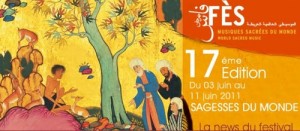
Travel Exploration is proud to present the final music and conference schedule for the Fes Festival of World Sacred Music. The Fes Festival Of World Sacred Music’s 17th Edition will take place from June 3rd – 12th, 2011. The Fes Music Festival can be attended by taking a 13 Day/ 12 Night Morocco Tour with Music Host, Joel Davis which includes discovers of Morocco’s Imperial Cities, the Fes Festival of World Sacred Music and the Sahara region. Discovering Fes and the Fes Festival can also be done on a private journey to Fes. This immense undertaking of a Fes Festival Program in the city of Fes, Morocco is once again spearheaded by Mr. Faouzi Skali. Mr. Faouzi Skali has a Doctor in anthropology, ethnology and religion sciences. Faouzi Skali was born in Fes Morocco in 1953. Mr. Skali founded the international symposium A soul for the globalization – since 2001 – in parallel of the Festival of World Sacred Music in Fes. Those of us who know Mr. Faouzi Skali’s word and his commitment to peace and a greater Fes are pleased to have him back at the helm. The 17th Edition of the Fes Festival of World Sacred Music is going to be like none other. At a time when the Muslim world is looking for reform towards democracy and peace, Morocco once again leads with a commitment to these efforts linked to culture, arts and community. The mix of musicians from around the world at the 17th annual Fes Festival within the modernized, peaceful and progressive country of Morocco is surely to be at the threshold of the world’s eyes and an opportunity for world and spiritual music to once again bridge the gaps that exist among us.
The 16th Edition of the Fes Festival of World Sacred World Music will take place in Fes, Morocco from June 4th -12th, 2010. Travel Exploration Morocco offers a tour to the Fes Festival for 11 Days/ 10 Nights that includes the opportunity to visit the Best of Morocco while enjoying Music at the Fes Festival of World Sacred Music. The Fes Festival of World Sacred Music Morocco Tour Itinerary gives Moroccan Travelers the opportunity to discover Morocco’s Imperial Cities in a 4×4 on a Private Morocco Tour visiting Casablanca, Marrakech, Fes, Meknes and the Roman Ruins of Volubilis while basking their ears in International World Music alongside Traditional and Contemporary Moroccan music traditions.
The 16th Edition of the Fes Festival of World Sacred Music will take place in Fes, Morocco from June 4th -12th, 2010. The Fes Festival’s theme for 2010 is “Journey of Initiation: from mystery to revelation. The Fes Festival of World Sacred Music is 9-day celebration held in mid-summer (June 2010) that takes place in the imperial city of Fes. The festival was founded in 1994 by the Moroccan scholar and philanthropist Faouzi Skali and was created to showcase major musical traditions of sacred, spiritual music and world music. The current Artistic Director is Cherif Khaznadar, a pioneer of world music and one of the most influential Artistic Directors on the scene. Each year the festival celebrates artists from Muslim, Jewish, Christian, Hindu and other faiths to perform together in a spirit of mutual respect and collaboration.

